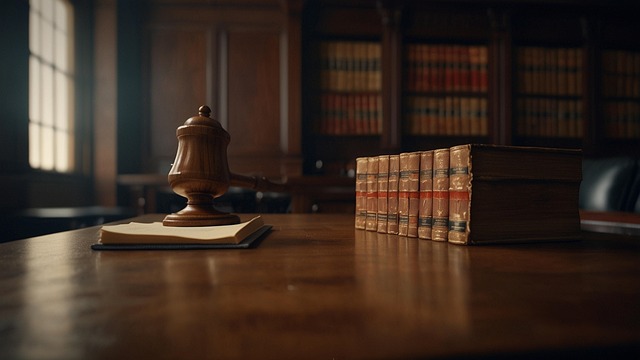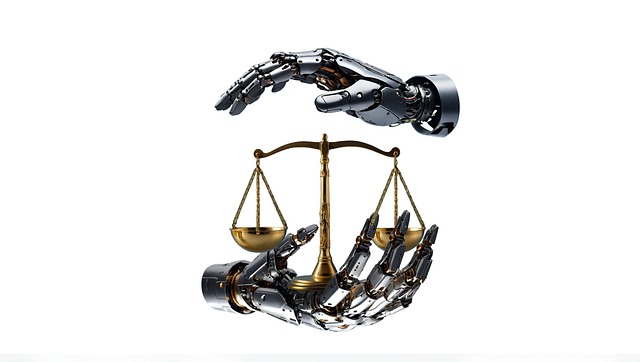The "Understanding Burden of Proof in Criminal Cases" highlights the fundamental principle that guides criminal law, emphasizing the prosecutor's responsibility to present strong evidence proving each crime element beyond a reasonable doubt. This standard protects against wrongful convictions, ensures fairness, and maintains public trust in the justice system. Mastery of the burden of proof is crucial for both prosecutors and defense attorneys, as it influences every stage of investigation, enforcement, and trial, ultimately aiming to deliver just outcomes while preserving the integrity of the criminal justice system.
In the intricate web of criminal law enforcement, understanding the burden of proof is paramount. This article delves into the fundamental role this concept plays in ensuring justice. We explore the standard of ‘beyond reasonable doubt’ and its impact on proving guilt, while also highlighting the rights and protections afforded to defendants during trials. Additionally, we dissect common misinterpretations, emphasizing the importance of clarity in this critical aspect of criminal law for a fair and effective legal system.
- The Fundamental Role of Burden of Proof in Criminal Law
- Defining the Standard: Beyond Reasonable Doubt
- Accusing Party's Responsibility: Proving Guilt
- Defendant's Rights and Protections During Trial
- Impact of Misinterpretations and Common Misconceptions
The Fundamental Role of Burden of Proof in Criminal Law

In criminal law, the burden of proof is a fundamental concept that plays a pivotal role in ensuring justice. It refers to the legal obligation placed on the prosecution to present compelling evidence and prove each element of a crime beyond a reasonable doubt. Understanding the burden of proof in criminal cases is crucial for both prosecutors and general criminal defense attorneys alike, as it dictates the standard of evidence required to secure a conviction or acquittal.
The concept ensures that individuals are not convicted based on mere speculation or suspicion. An unprecedented track record of successful defenses often hinges on this principle, as it allows for a thorough examination of evidence and protects against wrongful convictions across the country. By applying the burden of proof, courts maintain a balanced approach, safeguarding both the rights of the accused and the integrity of the legal system in general criminal defense matters.
Defining the Standard: Beyond Reasonable Doubt

In criminal law enforcement, understanding the burden of proof is paramount. The standard of proof required to convict an accused person is often referred to as “beyond a reasonable doubt.” This means that the prosecution must present compelling evidence in court that leaves no reasonable doubt about the defendant’s guilt. It’s not merely a balance of probabilities; it’s a higher threshold designed to protect against wrongful convictions, especially in high-stakes cases involving corporate and individual clients.
This concept is crucial as it ensures that jury trials remain fair and just. The jury must be convinced of the defendant’s guilt to the point where they can set aside any reasonable doubts. This standard plays a significant role in maintaining public trust in the criminal justice system, ensuring that the rights of both the accused and the potential victims are protected.
Accusing Party's Responsibility: Proving Guilt

In criminal law enforcement, understanding the burden of proof in criminal cases is paramount for achieving justice. The accusing party, usually a prosecution team, bears the responsibility to prove guilt beyond a reasonable doubt. This means they must present compelling evidence and arguments that leave no reasonable alternative explanation but the defendant’s culpability. The process involves all stages of the investigative and enforcement process, ensuring every step is meticulously documented and adheres to legal protocols.
A key aspect of proving guilt is maintaining this burden consistently throughout the trial. This requires gathering reliable and credible evidence, presenting it coherently, and addressing any potential counterarguments. The goal is to achieve extraordinary results for both corporate and individual clients alike, upholding the integrity of the justice system while ensuring that every case receives fair and impartial scrutiny.
Defendant's Rights and Protections During Trial

In any criminal trial, understanding the burden of proof is a cornerstone for ensuring defendant’s rights and protections. The prosecution bears the burden of proving beyond a reasonable doubt that the defendant committed the alleged crime. This means they must present compelling evidence and persuade the jury or judge to accept their narrative as true, leaving no reasonable alternative explanation. Defendants are presumed innocent until proven guilty, allowing them to remain free from incarceration while the state constructs its case.
This process safeguards against wrongful convictions by requiring a high standard of proof. It also guarantees that both corporate and individual clients, as well as philanthropic and political communities, can have faith in the justice system. By ensuring the prosecution meets this rigorous burden, the system fosters achieving extraordinary results where guilt is established conclusively, while maintaining the integrity and fairness essential to our legal framework.
Impact of Misinterpretations and Common Misconceptions

In the realm of criminal law enforcement, misinterpretations and misconceptions can significantly impact cases, often complicating the process for both legal professionals and the general public. One critical aspect that is frequently misunderstood is the Understanding Burden of Proof in Criminal Cases. This concept, which refers to the requirement to present compelling evidence to secure a conviction, is pivotal yet often overlooked. The burden of proof lies with the prosecution, ensuring that any accusations against an individual are supported by substantial and credible evidence beyond a reasonable doubt. Misconceptions about this principle can lead to unfair judgments, as it’s not merely about presenting any evidence but rather about providing irrefutable facts that establish guilt.
Across the country, cases involving white-collar and economic crimes often highlight these misinterpretations. Accusations in such intricate matters demand a precise understanding of legal standards. For instance, when dealing with financial misdeeds or complex fraud schemes, a common misconception is that merely presenting documents or records constitutes sufficient proof. However, the reality is that these pieces of evidence must fit together seamlessly to form a compelling narrative, leaving no room for reasonable doubt. This meticulous approach ensures that even in cases with an unprecedented track record of success, justice remains blind and impartial, safeguarding the rights of both the accused and the pursuit of true, fair justice.
Understanding the burden of proof is crucial for navigating the complexities of criminal law enforcement. By adhering to the standard of beyond a reasonable doubt, prosecutors must rigorously prove guilt, ensuring fairness and protecting defendant rights. Awareness of common misinterpretations is vital to prevent errors and maintain the integrity of the justice system. Armed with this knowledge, folks can better appreciate the delicate balance between accusation and defense in criminal cases.






